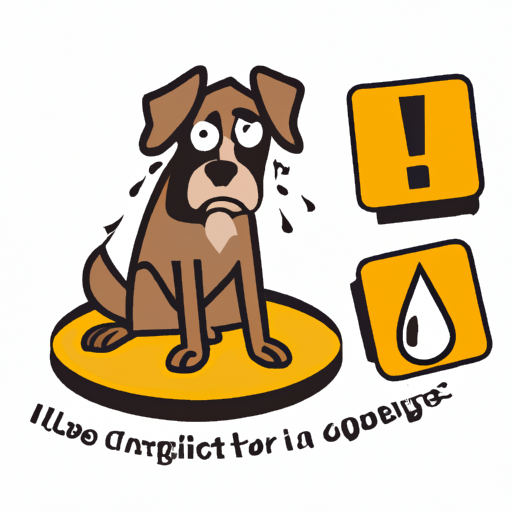As a caregiver, you know that your furry friend’s health is a top priority. Understanding the causes of urinary tract infections (UTIs) in dogs can help you prevent and treat these troubling infections.
What is a UTI?
A urinary tract infection (UTI) is an infection that affects any part of the urinary system, which includes the kidneys, bladder, ureters, and urethra. In dogs, UTIs are often caused by bacteria that enter the urinary tract, causing infection and inflammation.
1. How Do Dogs Get UTIs?
Dogs get UTIs in several ways:
- Bacterial Infiltration: This is the most common cause. Bacteria, often from the skin or feces, enter the urinary tract and multiply, leading to an infection.
- Immune System Problems: If your dog’s immune system is compromised, they are more susceptible to infections, including UTIs.
- Bladder Stones: These can cause blockages, making it difficult for your dog to urinate. This can lead to bacterial growth and infection.
2. What Are the Symptoms of UTIs in Dogs?
As a caregiver, you need to be aware of the signs of a UTI so you can get your furry friend the help they need. Symptoms include:
- Frequent urination
- Difficulty or pain when urinating
- Blood in the urine
- Fever
If you notice any of these symptoms, it’s important to take your dog to the vet as soon as possible.
3. How Are UTIs in Dogs Treated?
Treatment for UTIs in dogs usually involves antibiotics to kill the bacteria causing the infection. Depending on the severity of the infection, your vet may also recommend pain relief or a special diet to help prevent future UTIs.
| Treatment | Description |
|---|---|
| Antibiotics | Kill bacteria causing the infection |
| Pain relief | Help your dog feel more comfortable |
| Special diet | Help prevent future UTIs |
4. How Can You Prevent UTIs in Dogs?
Preventing UTIs in your dog involves a few key steps:
- Ensure your dog has plenty of fresh, clean water to drink. This helps flush out bacteria from the urinary tract.
- Make sure your dog gets regular exercise. Physical activity can help prevent bladder stones, a common cause of UTIs.
- Keep your dog’s living area clean. This reduces the chance of bacterial contamination.
Frequently Asked Questions
Q: Are some dogs more prone to UTIs than others?
A: Yes, female dogs and older dogs are more likely to get UTIs.
Q: Can UTIs in dogs be serious?
A: Yes, if left untreated, UTIs can lead to kidney damage or other serious complications.
Q: How can I tell if my dog has a UTI?
A: Look for symptoms like frequent urination, blood in the urine, or difficulty urinating. If in doubt, always consult your vet.
Remember, as a caregiver, your dog relies on you for their health and wellbeing. Understanding the causes, symptoms, and treatments of UTIs can help you keep your furry friend healthy and happy.



